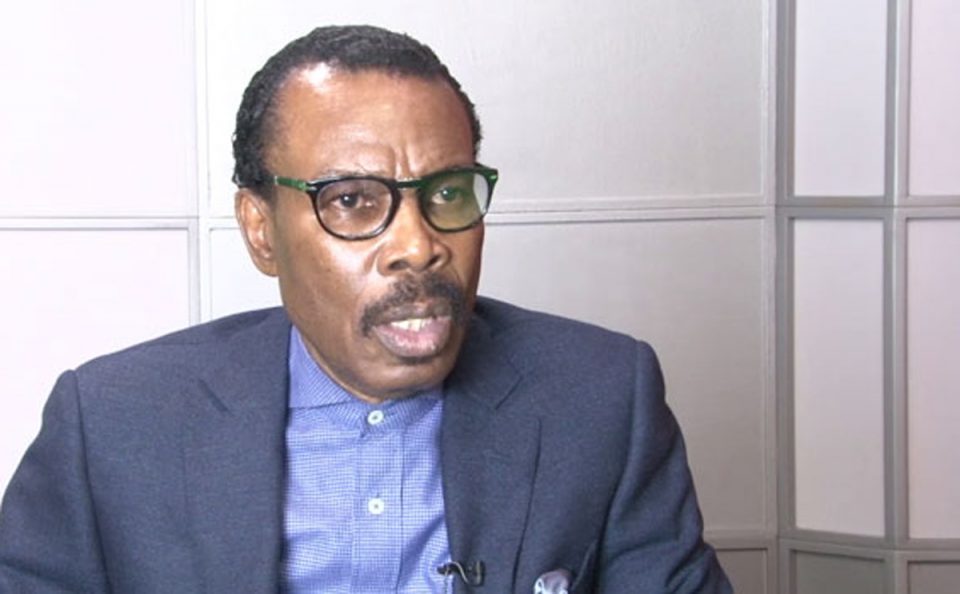The Chief Executive Officer of Financial Derivatives Company Limited, Bismarck Rewane, has warned that unless the economy grows by, at least, seven to eight per cent yearly in the next five to 10 years, the country risks multidimensional poverty, debt crisis, and heightened insecurity.
He said though Nigeria has the biggest gross domestic product (GDP) in Africa, it needs to attract both domestic and international capital to grow the current $446.543 billion GDP to $1.5 trillion by 2030 when the country’s population would be 250 million.
The economist, who spoke at a public lecture to mark the 64th birthday of the Vice President, Prof Yemi Osinbajo, said a strategic investment drive would lead to an accelerated, sustainable and inclusive growth for the country.
The lecture was organised by a pan-Nigerian coalition, Building the Future Forum (BTFF) in honour of the Vice President with the theme ‘Building the Future of Nigeria through Enterprise and Innovation’.
Rewane said: “We have our work cut out for us and if we are going to achieve accelerated, sustainable and inclusive growth, we need to attract domestic and international capital with its attendant investment multiplier to achieve a GDP level of $1.5 trillion by 2030 when our population could be 250 million or more.
“We need to grow the economy at least at 7-8 per cent per annum for 5-10 years based on an investment-led strategy. If we fail to do this very soon, the problems of multidimensional poverty, debt, and insecurity may consume us in the next decade.”
The financial analyst said much work needed to be done despite Nigeria’s remarkable achievements in the ease of doing business matrix,
According to him, Nigeria is the leading country according to the Economist Pocket Book of Figures with 39.9 per cent of its citizens either as nascent or direct entrepreneurs.
On key accomplishments as a nation, he said the issue was not whether Nigeria has made some achievements but that compared to its potential, it is still a laggard in many respects.
Rewane said the nation needs the intellectual depth of academics like Osinbajo and people in public life who have candour to make remarkable progress.
Local production value drops by N5.02tr amid N577.61b unsold goods
Weak purchasing power, forex concerns aggravate manufacturers’ woes
Local manufacturers have decried the rising level of inventory, especially for unsold manufactured goods, adding that declining disposable income of consumers, as well as rising inflation, have worsened the woes of producers.
With the economy witnessing a lockdown for some part of 2020, the latest H2 2020 data from the Manufacturers Association of Nigeria (MAN) have shown that the nation’s manufacturing production value declined by N5.02 trillion in 2020, while unsold goods rose higher to N577.61 billion during the period.
Specifically, manufacturing production value declined to N2.36 trillion in the second half of 2020 from N7.38 trillion recorded in the corresponding half of 2019; thus, indicating N5.02 trillion decline over the period. Though it increased by N0.32 trillion or 15.5 per cent when compared with N2.04 trillion recorded in the first half of the year, production value in the sector totalled N4.4 trillion in 2020 as against N11.99 trillion achieved in 2019.
MAN noted that unsold manufactured goods in the sector totalled N577.61 billion in 2020 as against N402.42 billion reported in 2019, attributable to the general low consumption and renewed imports in the economy as global economies generally opened after months of lockdown.
MAN stated that the electrical and electronic sectoral group accounted for over 33 per cent of the total inventory of unsold manufactured products in the period, adding that the group continues to deal with the challenges of low patronage, high smuggling, and products counterfeiting which rubbed-off negatively on inventory.
According to MAN, there is a need for government to initiate policies that will strengthen the purchasing power of consumers to stimulate aggregate demand and deliberately support industries to reduce the production cost of manufactured products in the country.
The local producers noted that though there was an uptick in production and performance of the real sector in the latter part of the year due to the opening up of the economy, the pandemic had a crushing impact on the manufacturing sector.
“At the moment and following the impact of COVID-19, productivity in the sector is at the lowest and therefore requires deliberately orchestrated action to rekindle significant productive activities in the sector”, MAN added.
MAN President, Mansur Ahmed, had stated that the outcomes of the pandemic led to a lockdown, near shut down of the operations of eight manufacturing sectoral groups, disruption in the supply chain, inventory, and loss of jobs.
Ahmed said the Association had made a series of submissions to the government on the challenges accompanied with suggestions on how to resolve them.
For manufacturers to remain in business, MAN implored the CBN to intervene directly to ensure that manufacturers have access to funds, particularly the N1 trillion COVID-19 stimulus package; sensitize manufacturers on the current feasibility of the N220 billion Micro, Small and Medium Enterprises Development Fund (MSMED) and N300 billion Real Sector Support Facility (RSSF) and how they can be accessed; and carry out a coordinated reduction in the monetary policy rate and lending rate.
Furthermore, the manufacturers urged the government to improve on the time taken to clear container/cargoes clearance at the ports; reduce the various burdensome port charges and remove demurrage for delayed clearance due to logistics and administrative constraints; and also resuscitate available rail tracks and construct new ones and linking them to industrial hubs.




